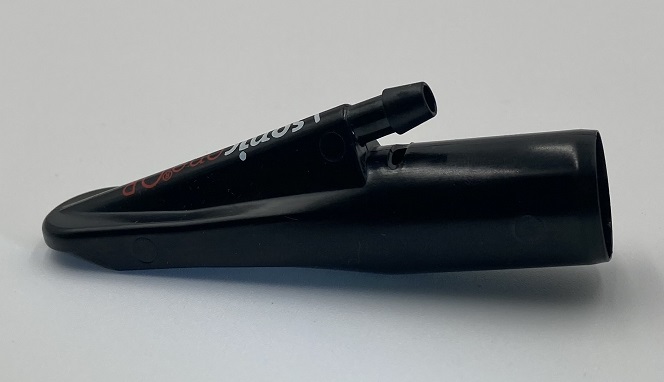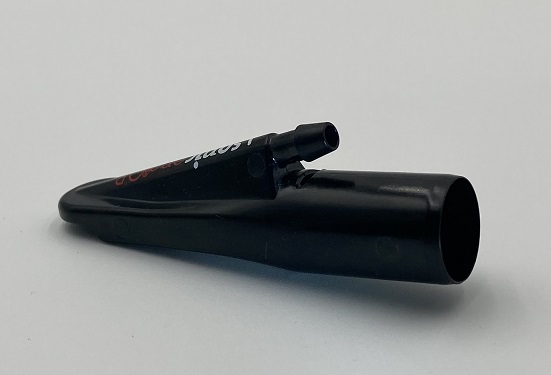Radel (PPSU) Injection Molding Parts processed at J&L
Delivers High Performance
Radel is a high-performing material ideal for injection molding parts in the medical device, aerospace, and electronics industries. Manufactured by Solvay, Radel is widely recognized for its exceptional properties and performance. J&L has vast experience processing Radel and can help deliver all the below advantages:
EMAIL J&L a Radel Question
Sterilization and High Temperature Resistance
Radel offers excellent thermal stability. It can withstand continuous exposure to high temperatures up to 200°C (392°F) without significant degradation. It’s suitable for applications requiring high temperature sterilization. Radel can withstand over 1,000 cycles of steam sterilization (18 min at 134°), 100 cycles of Ethylene Oxide Gas, 200 cycles of Vaporized Hydrogen Peroxide and 40 kGy High Energy Gamma Radiation.
Chemical Resistance
Radel injection molding parts have exceptional resistance to a wide range of chemicals, including strong acids, bases, and solvents. It’s suitable for applications where components may come into contact with aggressive chemicals or cleaning agents.
Dimensional Stability
Radel maintains its shape and size even under varying temperature and humidity conditions. It’s ideal for applications requiring tight tolerances and precise fit, such as electronic connectors or medical device components.
High Strength and Impact Resistance
Radel offers exceptional mechanical properties, including high strength and impact resistance. It withstands demanding mechanical loads and impacts.
Biocompatibility
Radel is biocompatible. It’s an excellent choice for manufacturing medical devices.
Flame Resistance
Radel injection molding parts are inherently flame-resistant. Parts exhibit excellent resistance to ignition and self-extinguishing properties.
Ease of Processing
Radel has a wide processing window with a high melt flow index (MFI). It has low mold shrinkage and good dimensional stability.Long-Term Performance
Radel offers exceptional long-term performance with high resistance to creep. Parts made from Radel maintain their mechanical properties and performance.
Medical Device Grades Available
CLICK HERE to learn more about our Medical Device Injection Molding expertise.
PPSU Suppliers
RADEL Design Guide
When designing parts to be injection molded in Radel you must follow guidelines for: Wall thickness, Wall thickness transitions, Draft, Ribs, Bosses, and Coring.
Wall Thickness
Parts should be designed with the thinnest wall possible. However, the wall thickness must have structural strength to support loads, allow flow, and meet flammability and impact requirements. Such parts will have the lowest possible weight and shortest molding cycle time.
Occasionally, wall thicknesses greater than those required by the mechanical design analysis are required for molding. The flow of Radel depends on wall thickness, mold design and process variables, such as injection rate, mold temperature, melt temperature and injection pressure. The practical limits of wall thickness generally range from 0 .030 inches and 0 .250 inches. 0.010 inch wall thickness can be molded in short lengths.
Wall Thickness Variation
Uniform wall thickness is ideal but wall thickness changes may be required based on structural, appearance, and draft considerations. When there must be changes in wall section thickness, the designer should consider a gradual transition. Sharp transitions create problems in appearance and dimensional stability due to cooling rate differentials and turbulent flow. Further, sharp transitions will create stresses in the part.
Draft Angle
To allow part ejection, parts are usually designed with a taper in the direction of pull. The taper or draft creates clearance as the mold begins to move, allowing the part to eject from the mold.
For Radel the draft angle should generally be 1 degree to 2 degrees per side for both inside and outside walls. More draft maybe required when Cores are used in the mold design. Textured finishes increase draft requirements by a minimum of 1 degree per side for each 0 .001 inches of texture depth.
Ribs
The stiffness of a part can be improved with ribs. Ribs must be designed and located without increasing wall thickness. If wall thickness guidelines are not followed there will be molding problems like sink marks. Ribs may also function as internal runners, assisting material flow during molding. The thickness at the rib base should be equal to one-half the adjacent wall thickness. When ribs are opposite cosmetic areas, the width should be kept as thin as possible. Ribs can vary in height or width. All ribs should have a minimum of ½ degree of draft per side and should have a minimum radius of 0 .020 inch at the base.
Coring
Uniform wall thickness should be throughout a part. Thick sections will increase cycle time, cause sink marks, and increase molded-in stresses. Thick sections may be cored out to achieve uniform wall thickness. Ideally, coring should be in the direction of pull. Cores placed in any other direction create the need for some type of side action. Draft should be added to all coring and tooling polished for ejection purposes.
Bosses
As a general guideline, the OD of each boss should be twice the ID of the hole. The wall thickness of each boss should not exceed that of the part. A minimum radius of 25% of the wall thickness is required at the base of the boss for strength. A boss can be further strengthened by using gusset-plate supports around the boss or attaching it to a nearby wall with a properly designed rib. Thick sections will result in sink marks on the surface of the part.
CLICK HERE to download Radel literature from the Solvay website including a complete Design Guide.Radel and the Impact of Multiple-Use Medical Devices
Medical Device manufacturers are searching for ways to improve sustainable healthcare practices. Single-use devices provide infection control and patient safety but also create substantial medical waste. There is increasing interest in designing more robust and durable devices for multiple-use and selecting material that can survive many sterilization cycles.
The Advantage of Radel
Radel PPSU is a popular material for medical device companies seeking to maintain infection control protocols and design rugged multiple-use devices.
The advantages of Radel PPSU use in multiple-use medical devices are found in its inherent features:
- High heat resistance
- Long-term thermal stability
- Resistance to repeated steam sterilization
- Broad range of chemical compatibility
- Exceptional toughness and durability
Thermal Properties
Radel® PPSU has a glass transition temperature (Tg) of 428 °F. This generally represents the upper temperature limit for short-term use. It has a heat deflection temperature (HDT) of 405 °F at 1.8 MPa (264 psi) in accordance with ASTM D 638. This is how the material performs at an elevated temperature while supporting a load. In general, the maximum operating temperature for amorphous polymers is 9 to 18 °F below the HDT value.
Radel can survive over 1,000 Cycles of Steam Autoclaving
Steam Autoclaving is available at almost all major healthcare facilities. Steam autoclaves use a combination of heat and moisture to kill microorganisms. Temperatures are typically 250 to 273 °F and exposure can be 3 minutes for flash sterilization to 30 minutes depending on the temperature and articles to be sterilized.
Injection Molding material must be carefully selected for medical devices to be sterilized by the autoclave process. Many materials cannot withstand the repeated exposure to the high temperature steam. Materials such as polypropylene, polyamides and polycarbonate are adversely affected by the high temperature and/or high humidity. They can survive a limited number of cycles (<100).
Radel can be cleaned, disinfected and steam sterilized over 1,000 cycles without significant loss of properties.
The performance of each medical device should be tested and prototyped.


